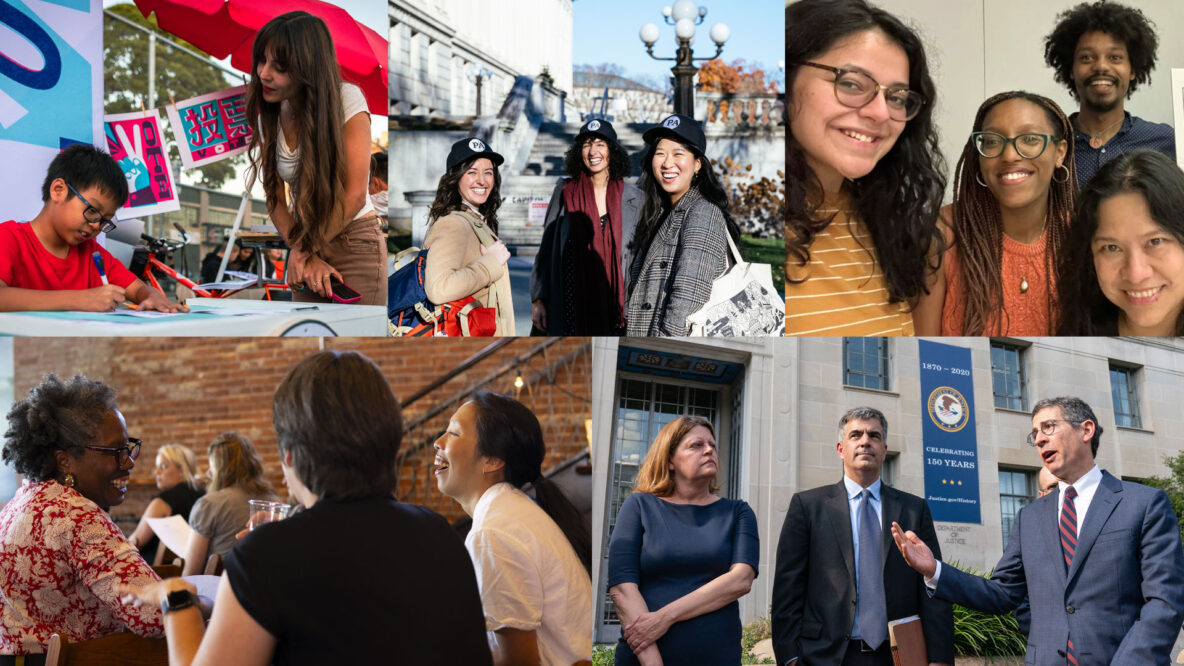When you read the coverage of an important local news story, such as the Texas floods or the protests in Los Angeles, you rarely think about what made that reporting possible. That’s because the infrastructure of news is largely invisible, happening behind the scenes and unknown to news consumers. Yet, this infrastructure is vital for local newsrooms to tell timely stories in a way that’s sustainable for the long term.
That’s why Press Forward today is announcing investments of $22.7 million in 22 projects that will strengthen the infrastructure of the field. Today’s local newsrooms are much smaller than 25 years ago – doing more with less amid rapid technological change and an always-on news cycle. As the sector continues to evolve, local newsrooms need shared resources and tools to strengthen operations, keep journalists healthy and safe, and develop new revenue streams.
These 22 recipients exemplify the wide range of ways that infrastructure can help newsrooms and journalists meet today’s urgent challenges.
The funding is through Press Forward’s Open Call on Infrastructure, which sought projects that make it easier to launch and sustain newsrooms. Applications address one of four core challenges in local news: Building an audience, strengthening operations, cultivating a talented workforce, and generating revenue.
Through the 550+ applications, we got a chance to see the pressure points in the industry and the seeds of innovation the field needs.
Here are several ways our 22 awardees are approaching these challenges:
- They are making it easier for newsrooms to prepare for crises. When a disaster hits home, like it did this month in Central Texas, newsrooms need to scramble to get news to their communities, often under difficult circumstances. Building on lessons from North Carolina’s Hurricane Helene, OpenNews is working with NC Local and Newspack to create a disaster reporting playbook with publishing tools.
-
They are working to protect a free and independent press. The Reporters Committee for Freedom of the Press will expand its Local Legal Initiative, a pro bono program that provides dedicated, on-the-ground legal support for local journalists and newsrooms doing critical investigative and enterprise stories in their communities. The initiative is currently active in five states, with plans to include Louisiana and Mississippi during the grant term.
- They are making sure journalists are safe and healthy. It’s a dangerous time for journalists, both online and in person, and their safety and mental health are paramount. The International Women’s Media Foundation will expand its Newsroom Safety Across America initiative to train 3,000 local journalists of all genders and help implement safety policies in newsrooms. The Global Center for Journalism and Trauma and Vita Activa will offer custom mental health services that benefit journalists, too.
- They are helping newsrooms reach financial sustainability. Immigrant-serving newsrooms are coming together to create the Immigrant News Coalition to test and refine effective revenue strategies. Similarly, the Latino Media Consortium is helping Latino-serving outlets become more sustainable through grants and consulting services, and LION Publishers will provide financial and HR consulting services to newsrooms. And Start.coop will help small newsrooms create a cooperative services hub to help take care of back-office operations, borrowing lessons from other industries and working with the news site Defector.
- They are lifting up underserved communities. It’s easy to find some of the most vulnerable communities on the news desert map showing a lack of trusted information in hundreds of U.S. counties. Type Investigations’ Springboard Project will expand to train journalists in underserved communities in investigative reporting and provide fundraising support. The Indigenous Journalists Association will expand its Indigenous Media Initiative to address the underrepresentation of Indigenous people in newsrooms and boost coverage in Indigenous communities.
- They are using AI for good. Technology is an ever-shifting asset for newsrooms that can also be costly and complicated. Meedan is working with Deep South Today to help create newsroom-operated chatbots to answer readers’ questions through AI-powered messaging, with links to learn more. MuckRock Foundation is helping to create the Transparency Network to give local journalists AI-powered tools plus human expertise needed to increase access to public records.
- They are supporting collaboration to make newsrooms stronger together. High Plains Public Radio will launch a regional information service to cover Kansas, Texas, Oklahoma, Nebraska and Colorado by partnering with local outlets in rural areas and recruiting community contributors. The Journalism + Design program at The New School will expand its Community News Networks program to connect hyper-local journalism programs at community colleges in New Jersey, New Mexico and Ohio to strengthen the flow of reliable news and information.
How we got here: The infrastructure behind these grants
Press Forward’s first Open Call helped support 204 smaller newsrooms – at least one in each state that are closing coverage gaps. However, funding is simply not enough to ensure the long-term sustainability of any organization. They need modern infrastructure to support them, so this Open Call focused on projects that can uplift even more newsrooms with game-changing solutions and networks.
Press Forward lives at the intersection of journalism and philanthropy. For this Open Call, we brought together more than 53 reviewers from across these sectors to evaluate submissions over two phases and worked with five news industry experts to manage the process and ensure the grantees had scalable or replicable solutions.
We did this on purpose, not only to get the best crop of recipients, but also so that both the fields of journalism and philanthropy could learn from each other.
You can learn more about our process in this separate post.
Overall, it was a difficult process winnowing down 500+ applicants down to 22 grantees, but we are thrilled with the recipients because they have a chance to transform the infrastructure of local news for years to come. We have also shared the 100+ submissions that made it to the second round of this open call with our funder network.
The projects are established and brand new, collaborative and networked, innovative and creative, and will provide the support needed for newsrooms around the nation.
Recipients: Open Call on Infrastructure
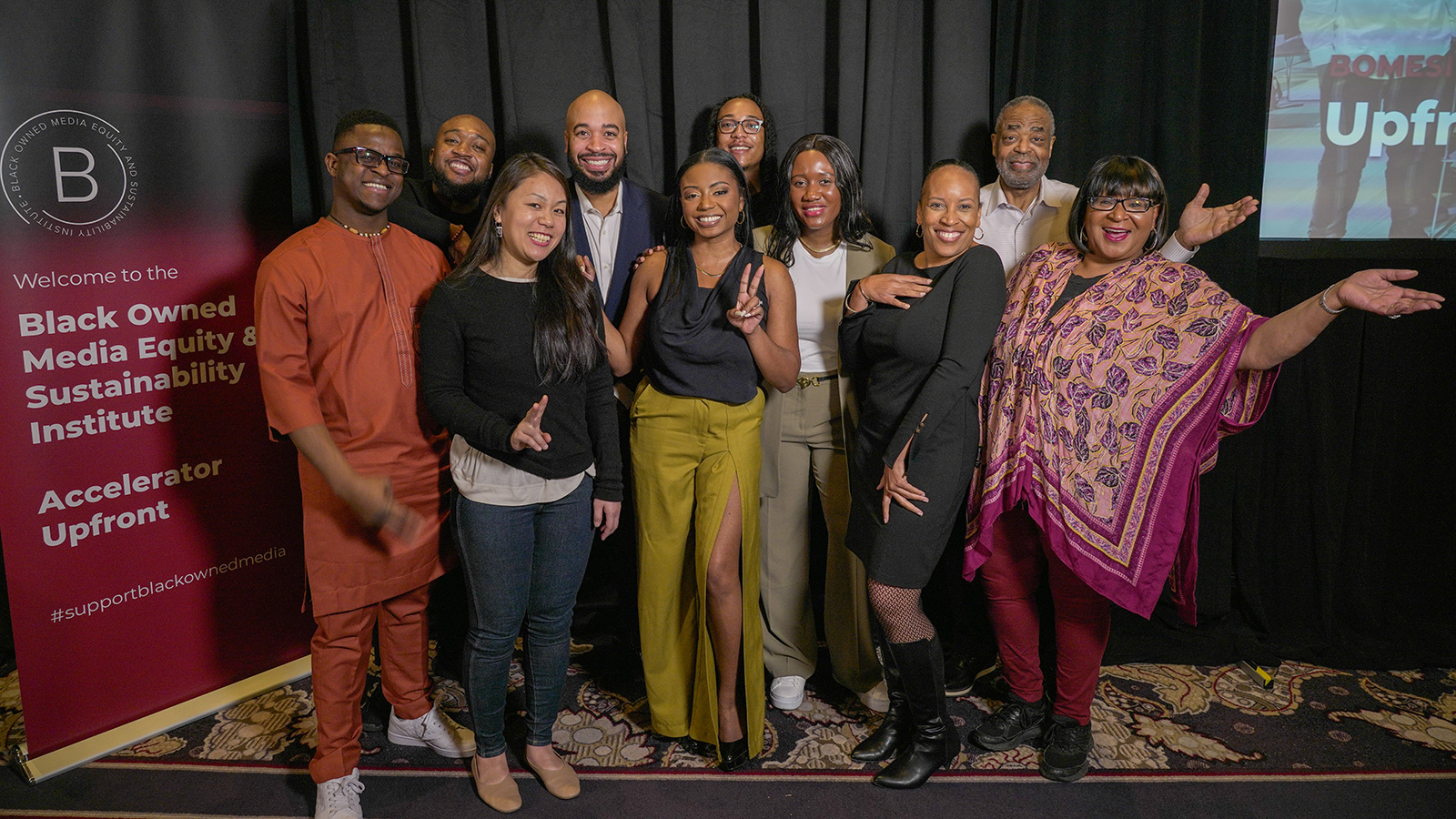
BOMESI
Award: $750,000
To increase revenue for local news outlets serving Black and diverse communities by expanding a tested ad network that centralizes ad sales and sponsorships from major brands while providing the training and tools outlets need to adopt it.
Anchored by the BOMESI Collective, its accelerator, and proprietary technology, this project works with small and mid-sized publications to upgrade their digital presence and connect them with hard-to-access brand partnerships. The ad platform activates campaigns across hundreds of publisher websites with centralized reporting and equitable revenue distribution. The approach streamlines brand partnerships and reduces operational burdens for participating outlets, ensuring emerging and established publishers benefit from collective deals.
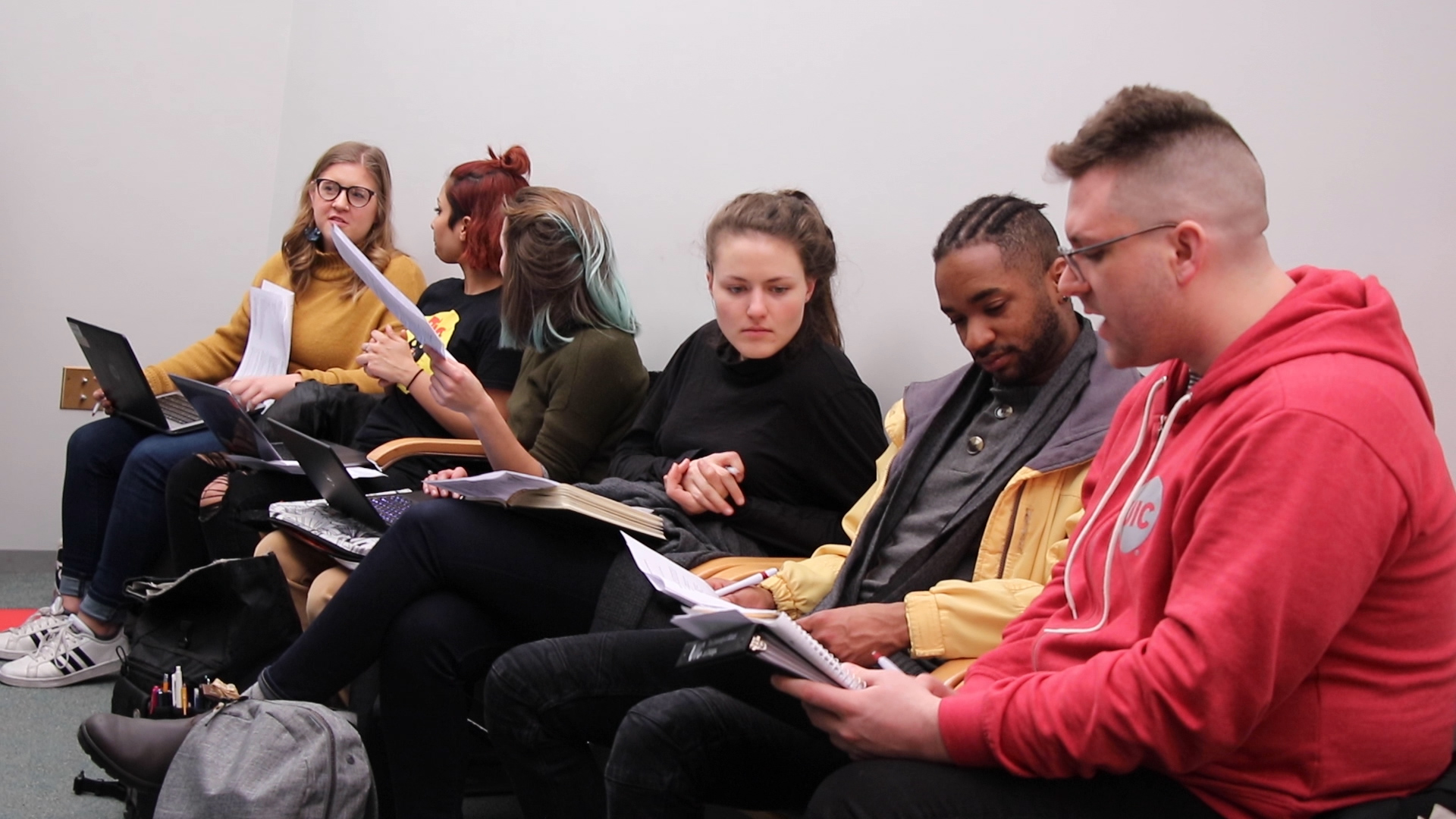
City Bureau
Award: $1.25 million
To expand and strengthen the national Documenters program, which creates accessible pathways for civic participation by training and paying everyday people to document local government meetings and share their findings with the public.
In partnership with dozens of organizations across 24 communities nationwide, Documenters has equipped more than 4,500 people with practical civic skills to participate in local government. Their work supports journalism investigations, policy advocacy, and community organizing efforts, while participants develop greater civic confidence and pursue careers in journalism, public service, and community leadership. Funding will help City Bureau strengthen the Documenters program’s infrastructure and expand it to additional communities nationwide.

Global Center for Journalism and Trauma
Award: $1.25 million
To strengthen mental health services for local journalists by scaling a program that will address a critical gap in their care.
Trauma and burnout critically undermine local newsroom capacity through the diminished performance of affected journalists, staff turnover, and lagging morale. The Global Center for Journalism and Trauma will train 45 clinicians to serve journalists across the U.S. by helping them understand the sector’s unique professional culture and challenges, deliver resilience training to local newsrooms, and develop industry-wide duty of care guidelines for news organizations.
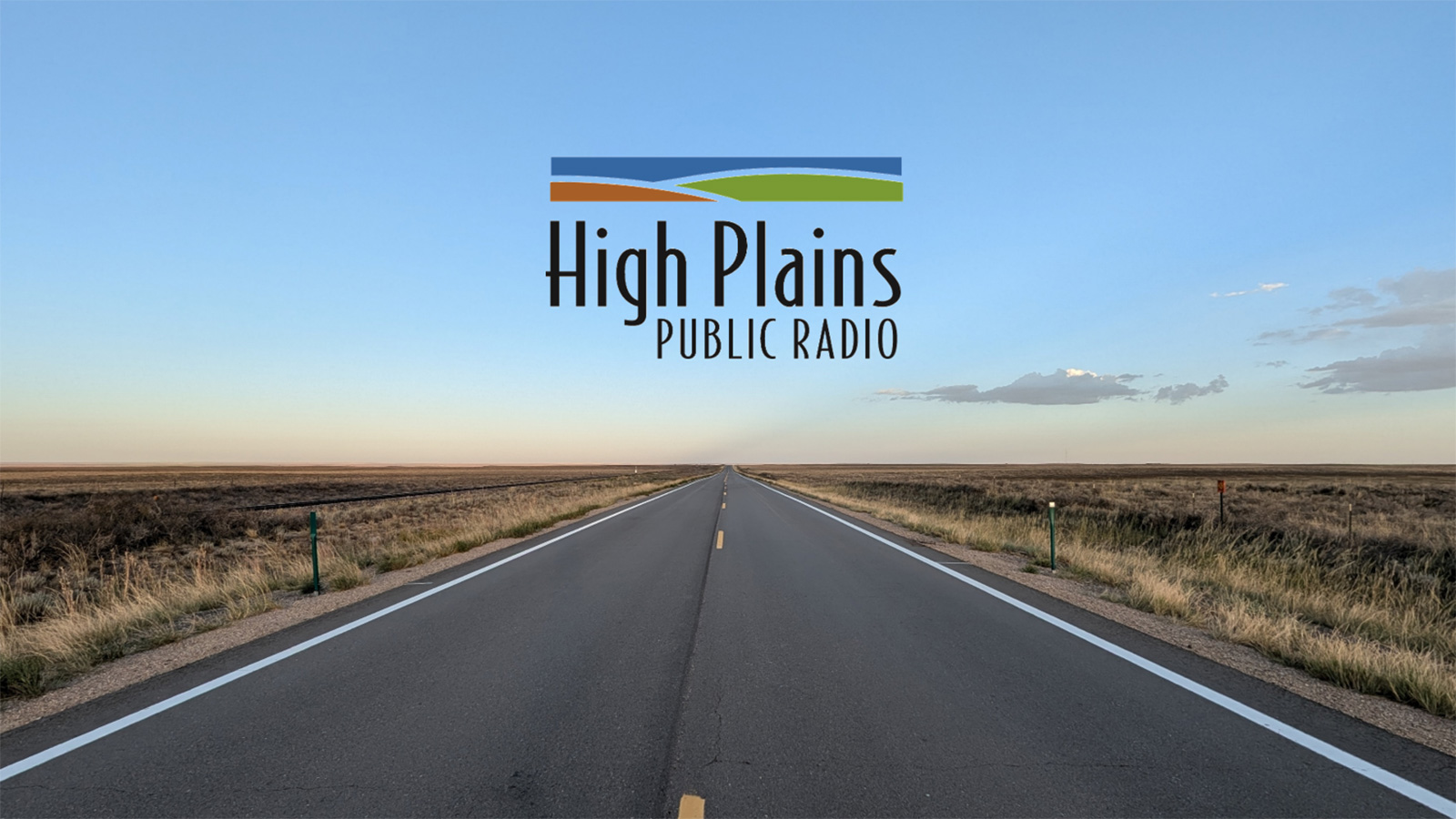
High Plains Public Radio
Award: $750,000
To launch the High Plains Civic Media Network (HPCMN), an audience-first, multi-platform, multi-format, regional news and information service for more than 600,000 adults across the High Plains region of Kansas, Texas, Oklahoma, Nebraska, and Colorado.
The media network will build a contributors network of community correspondents, topical experts, regional curators, regional reporters and public media partners, coordinated by a central editorial team. The initiative aspires to meet a wide range of rural audience information needs, interests, and perspectives and act as a scalable model for other rural areas.
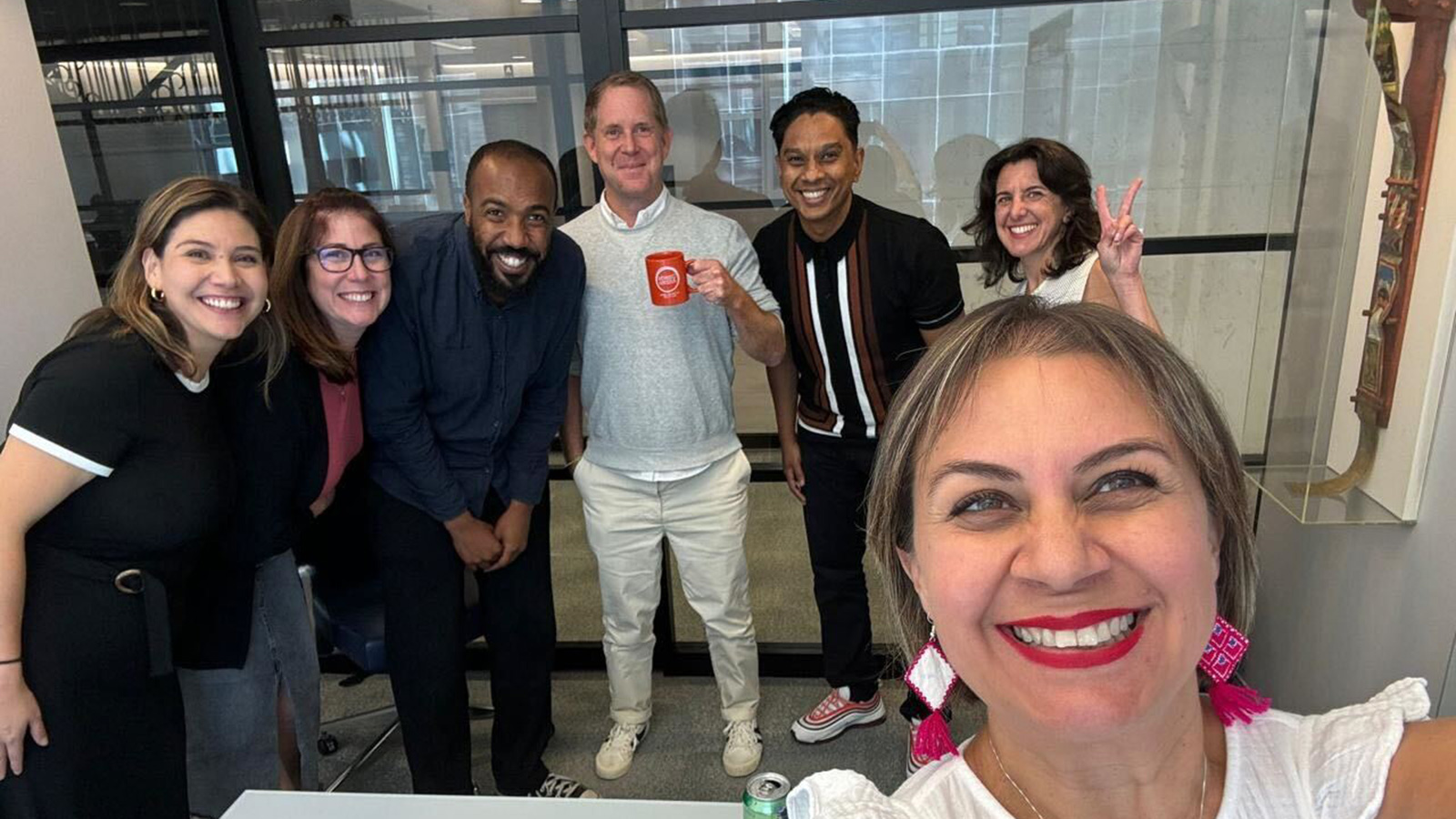
Immigrant News Coalition
Co-applicants: Documented, Sahan Journal, El Tímpano, Listening Post Collective
Award: $1.5 million
To formally launch the Immigrant News Coalition, which will test and spread effective revenue models for immigrant-serving newsrooms.
Across the country, immigrant-serving newsrooms have traditionally faced unstable revenue, resulting in 100+ ethnic news operations shuttering since 2020, according to Northwestern’s Local News Initiative. To help strengthen the sector, several successful news organizations will form a collaborative where existing proven revenue strategies are rigorously refined. The Immigrant News Coalition will create shared blueprints and case studies, providing a replicable framework to strengthen immigrant-serving journalism.
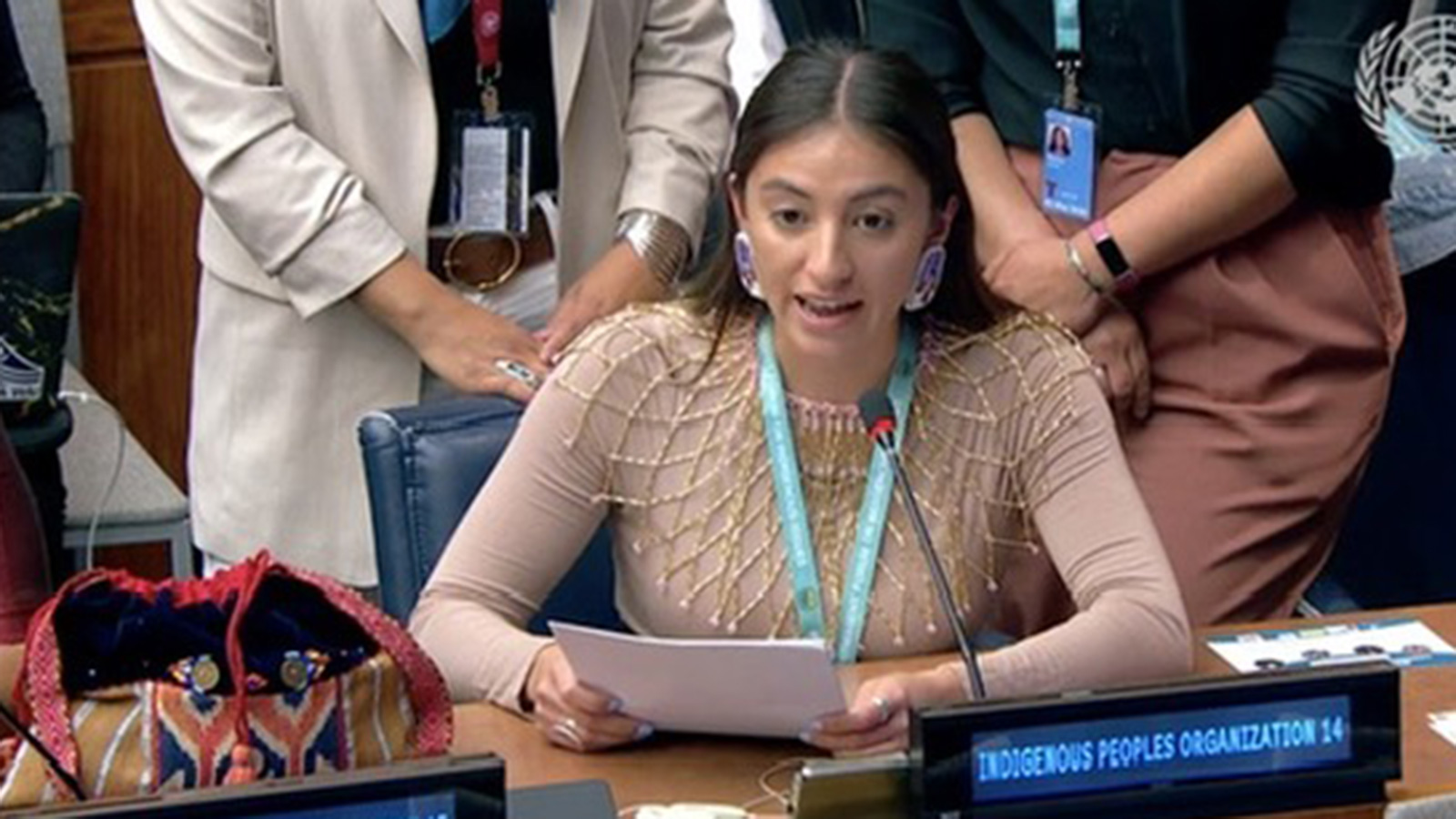
Indigenous Journalists Association
Award: $500,000
To expand its Indigenous Media Initiative, which addresses the vast underrepresentation of Indigenous people in U.S. media by improving coverage of these communities.
In the United States, less than .05 percent of newsroom employees are Native American. This lack of representation often results in little nuance and context in news coverage. The initiative will provide newsroom training, resources, and press freedom advocacy for tribal media serving Indigenous communities.
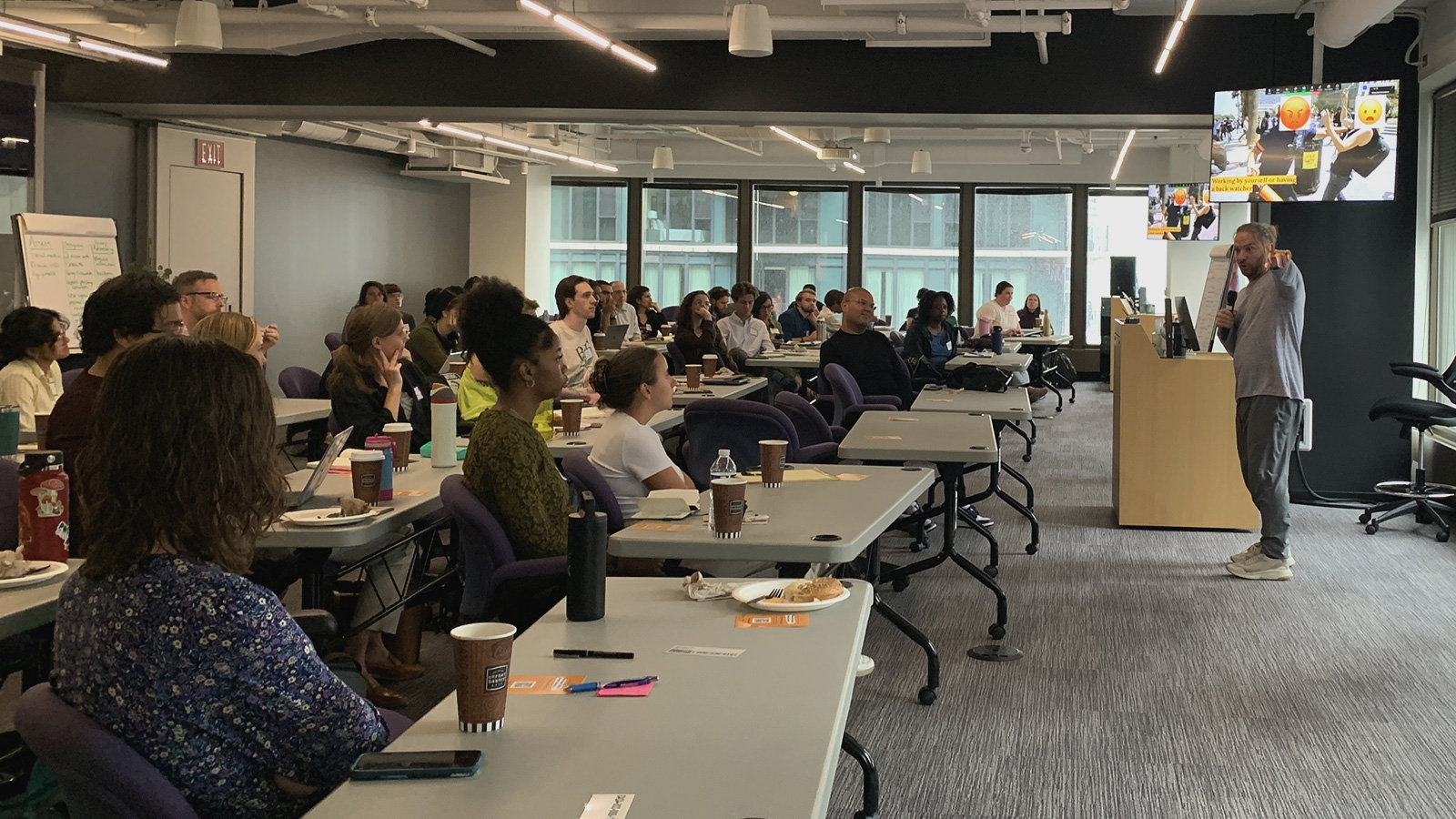
International Women’s Media Foundation
Award: $1.5 million
To establish a safety ecosystem within local newsrooms by scaling its Newsroom Safety Across America initiative that addresses the specific needs of newsrooms and journalists within their communities.
Journalists are subjected to increasing physical, digital, legal, and gender-based threats and violence simply for doing their job, IWMF research has found. The organization’s safety initiative, launched ahead of the 2024 election, will expand to provide this holistic training to 3,000 media workers of all genders, implement formal safety policies in newsrooms, and develop regional Safety Ambassadors who will serve as a dedicated resource in their communities that helps support and build safety infrastructures in local newsrooms.
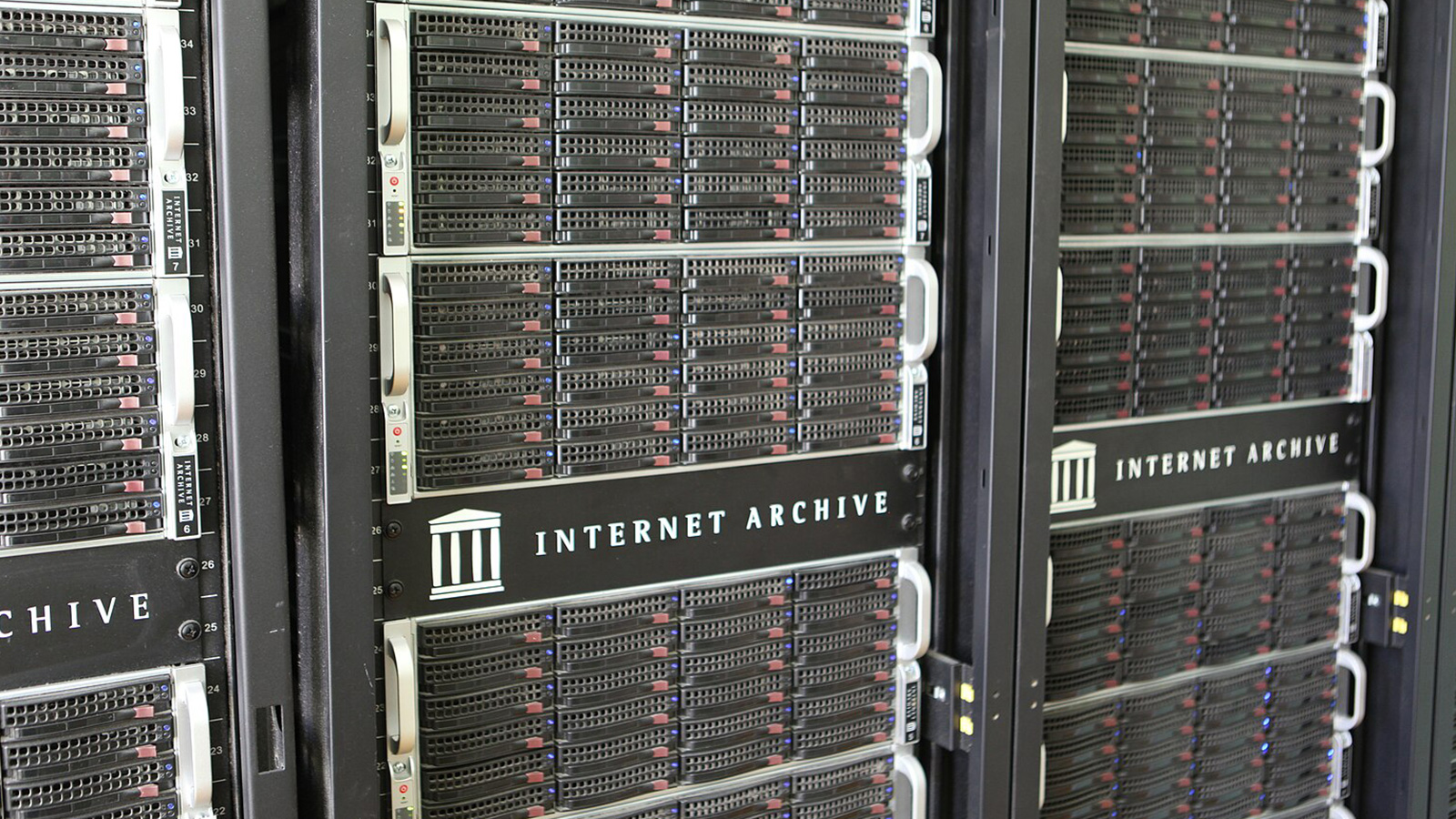
Internet Archive
Co-applicants: Investigative Reporters and Editors (IRE), Poynter Institute
Award: $1 million
To develop a national program that preserves vital local online news content that often goes offline when a publication ceases to exist.
As the first draft of history, local news published today will be needed by tomorrow’s journalists, scholars, and everyday residents. However, no infrastructure exists to ensure the preservation and access of news published online or in digital formats. “Today’s News for Tomorrow” will develop a national program that enables newsrooms and journalists to preserve their digital assets to support both immediate internal needs and communities’ future information needs. Funding will help train 300 newsrooms and journalists who will receive Internet Archive’s web archiving, digital preservation services, and training at no cost.
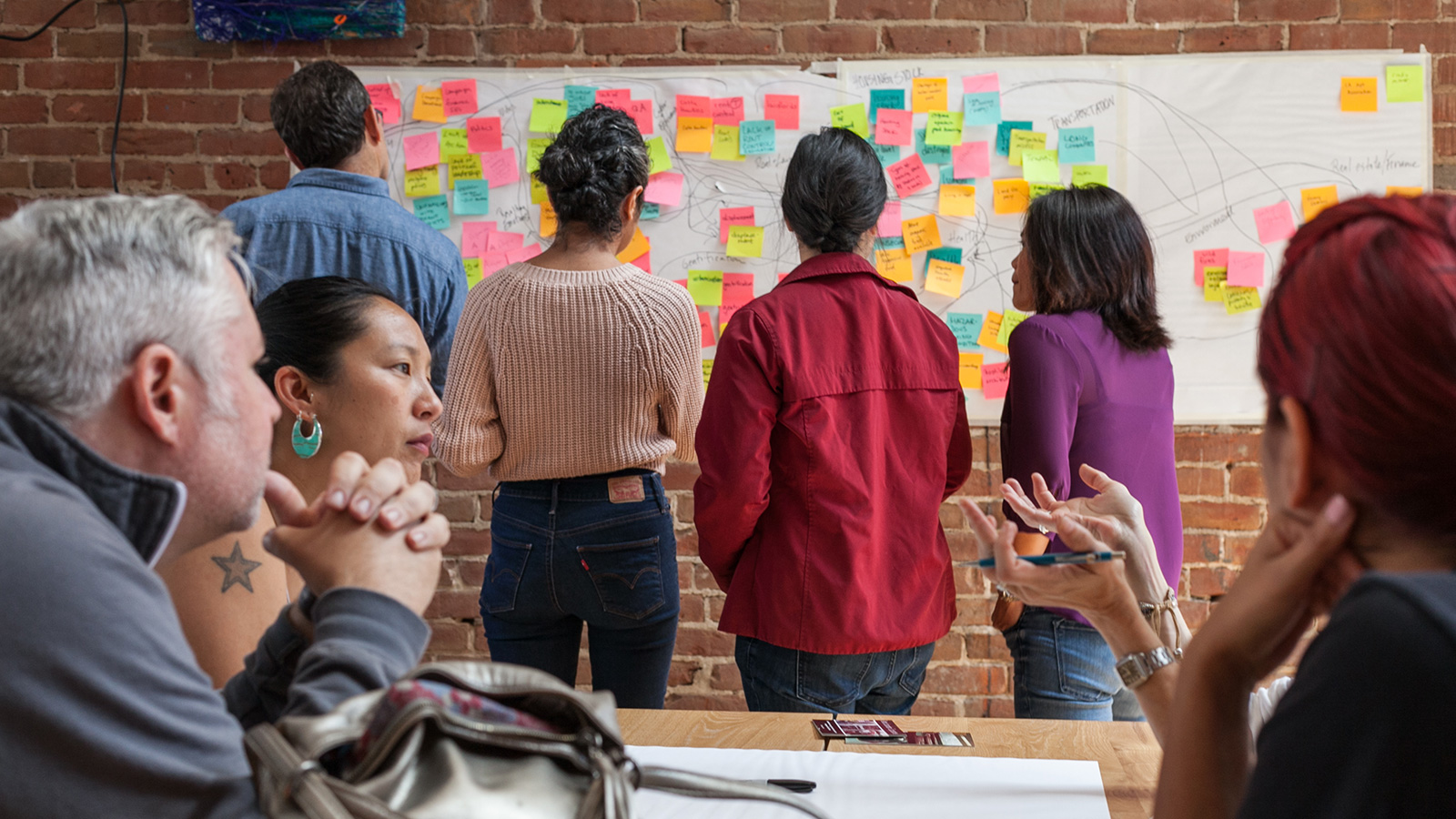
Journalism + Design Lab at The New School
Award: $1.5 million
To weave community colleges into local news infrastructure and build pathways for more people to share, discuss, and act on the news.
The Journalism + Design Lab’s initiative will position community colleges in New Jersey, New Mexico, and Ohio as hubs for local news, forging partnerships with newsrooms that expand their capacity to meaningfully engage their communities. This work builds upon the J+D Lab’s track record of co-creating journalism projects with community colleges across the country, trusted institutions that already serve people often overlooked by traditional media.
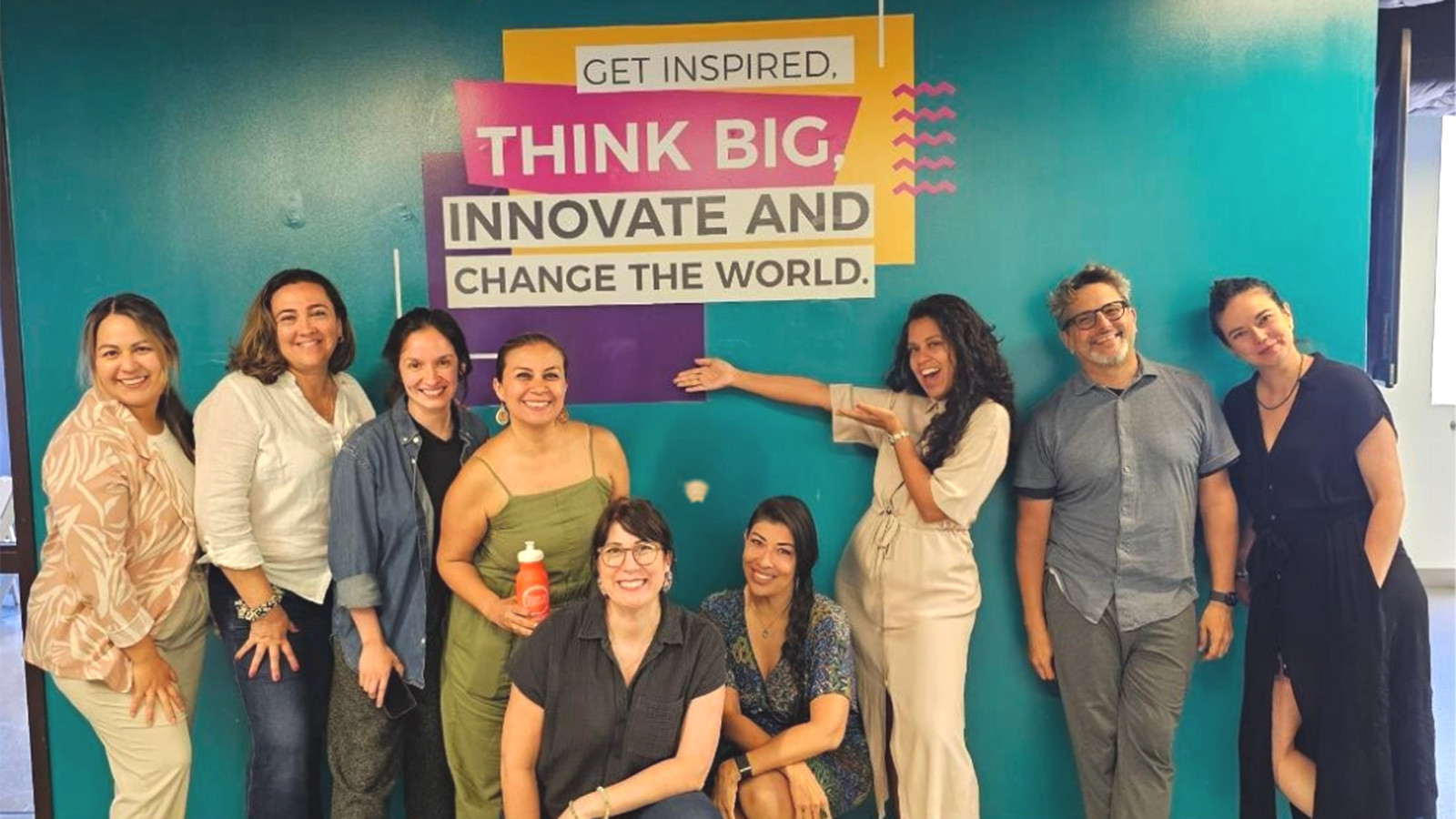
Latino Media Consortium
Award: $750,000
To support local Latino-serving outlets in reaching sustainability and growth through direct funding, capacity-building assessments, and professional support services.
Latino-serving media is disproportionately impacted by the financial crisis in local news, resulting in too many Latinos in the U.S. left without the essential culturally informed English, Spanish, and bilingual news and information they need to make decisions about their lives and communities. Led by experienced news and media professionals, the Consortium helps strengthen Latino-serving publications by identifying their needs and providing them with impactful grants, along with professional support services, to improve their operations.

LION Publishers
Award: $1 million
To strengthen newsroom business operations by providing expertise in financial management and human resources.
LION has produced Sustainability Audits for more than 350 newsrooms, many of which are diagnosed with the same core issues with their finances and HR policies. LION developed the pilot Sustainability 360 to address these challenges by providing participants with free consulting services. Press Forward funding will provide financial and HR consulting services—up to 60 hours per organization—to as many as 80 independent newsrooms.
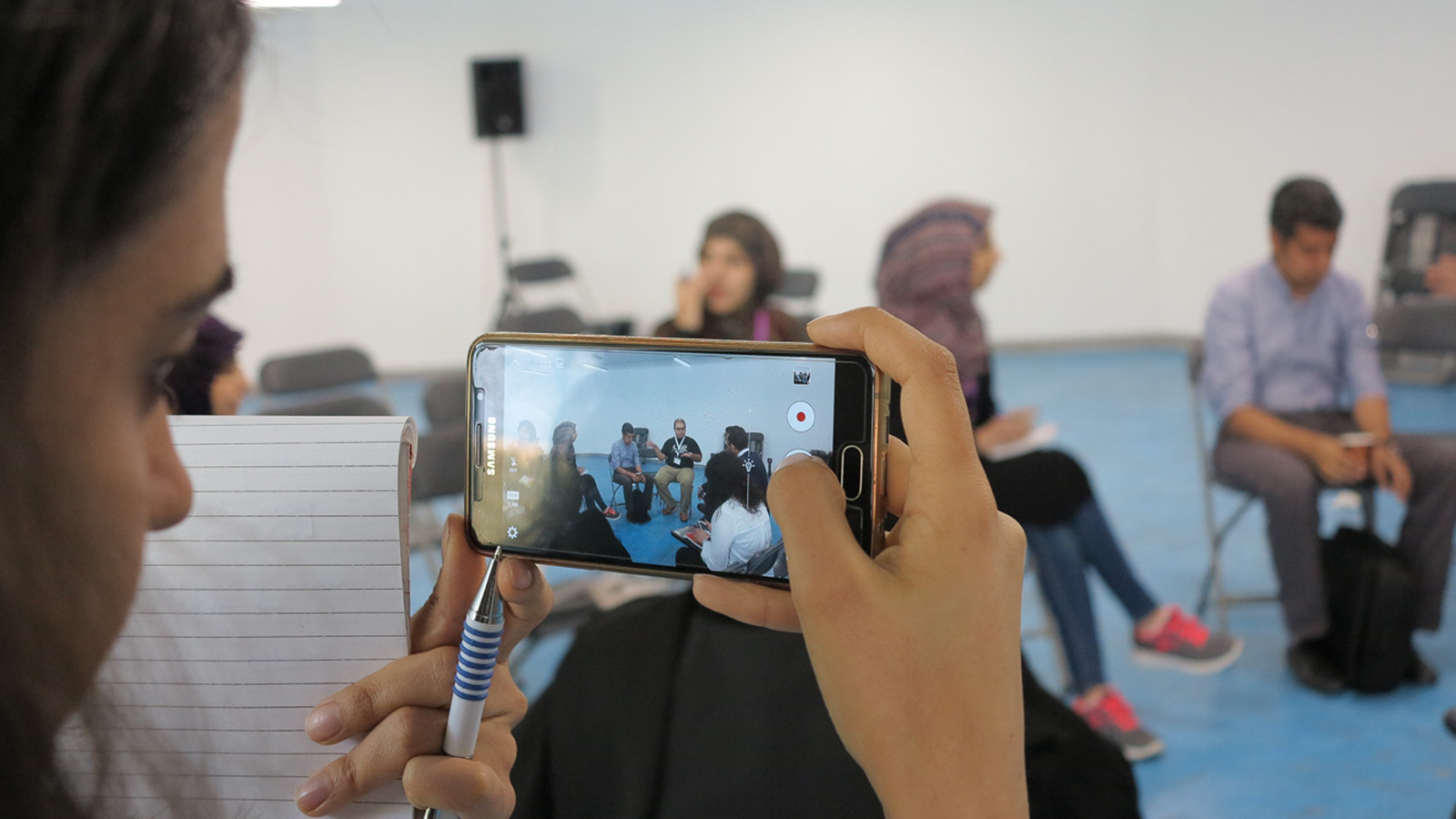
Meedan
Co-applicant: Deep South Today
Award: $1 million
To help newsrooms strengthen relationships with their audiences through AI-powered direct messaging
The newsroom-operated chatbots will deliver succinct answers to readers’ questions, solicit their tips and ideas, and offer them a pathway to reading full-length articles. Every response delivered will be drawn from the newsroom’s archive and public data sources and provide citations with links allowing readers to learn more about the issues.
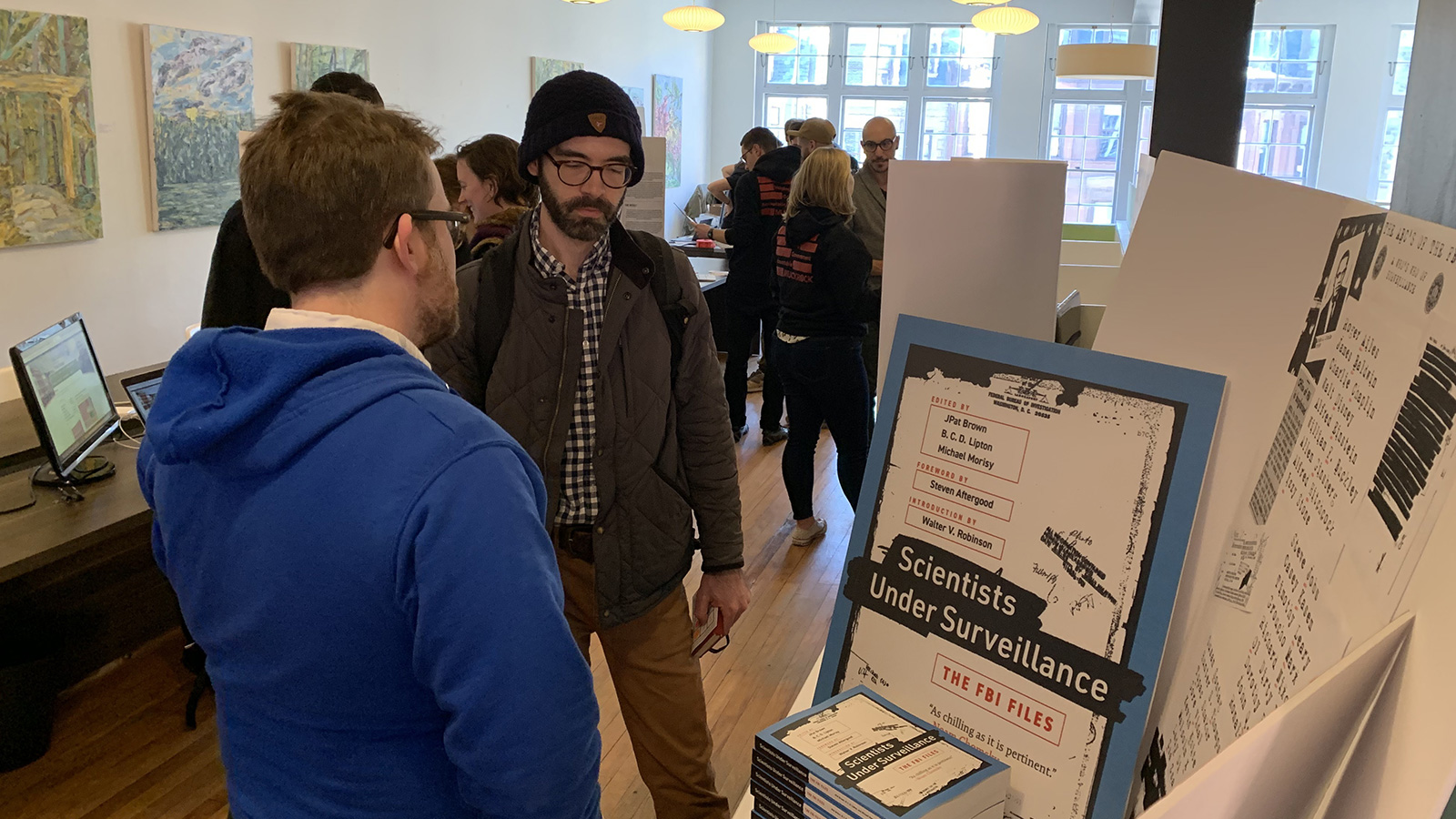
MuckRock Foundation
Co-applicants: National Freedom of Information Coalition and Reporters Committee for Freedom of the Press
Award: $1.25 million
To create the Transparency Network, which aims to equip local journalists with AI-powered tools and human expertise to improve access to public records.
Journalism relies on public records, but transparency laws are weakening nationwide. The Transparency Network, which will bring together organizations across nearly every state, will give journalists instant access to the knowledge of the country’s foremost records experts through AI-powered tools and direct access to advisors.
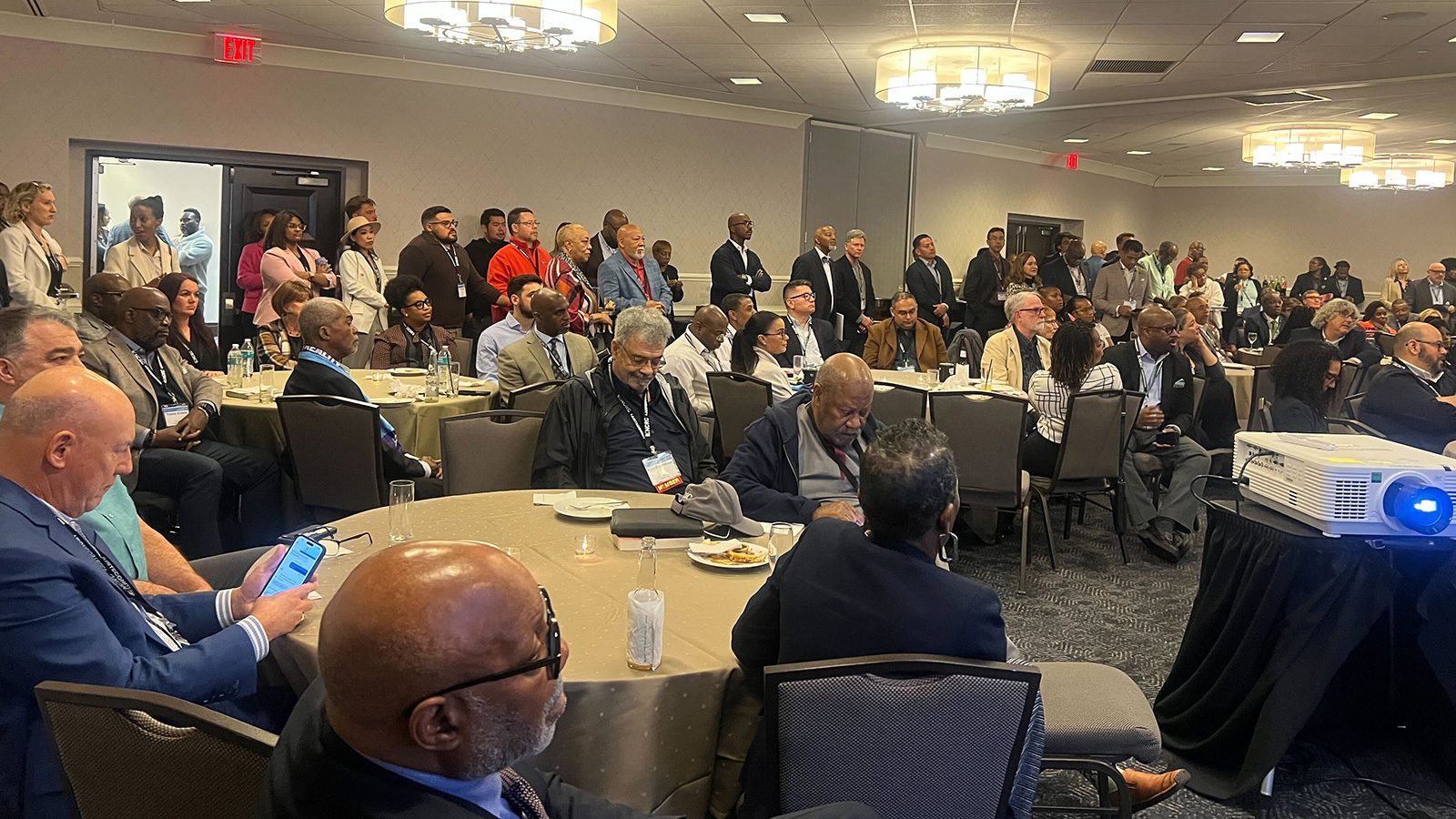
NCRC Community Development Fund, Inc.
Co-applicant: URL Media
Award: $1.25 million
To expand its Media Resilience Fund, a loan program offering low-interest, flexible financing to local news outlets, particularly those in underserved communities.
Local news organizations often struggle to access sustainable financing, as traditional lenders view them as high-risk. An expanded Media Resilience Fund will provide accessible, low-interest financing to local news organizations, so outlets can hire revenue-generating personnel, expand coverage, manage cash flow, and implement new business models.
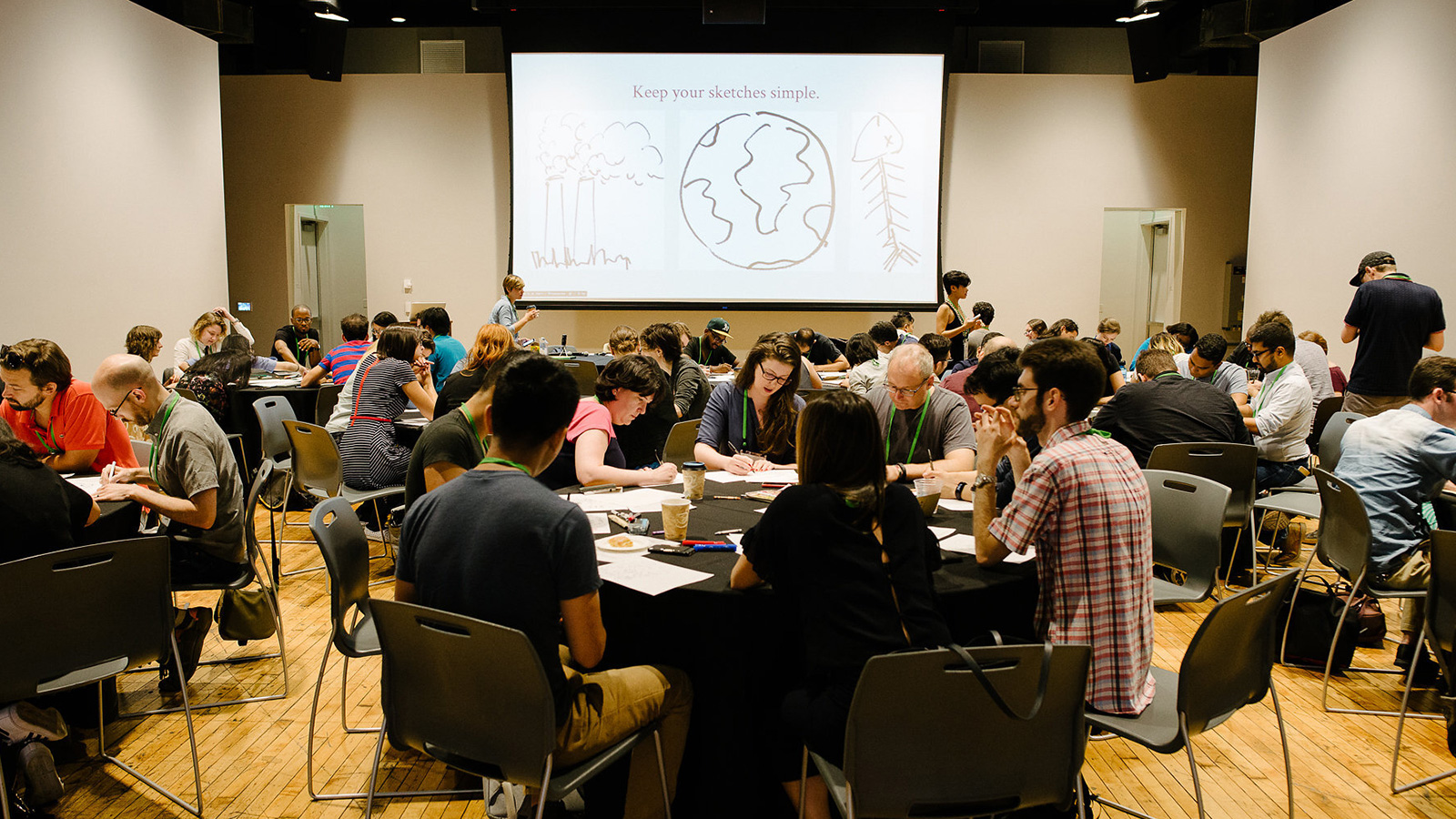
OpenNews
Co-applicants: Newspack, NC Local
Award: $1.2 million
To create “Emergency Mode for News,” which equips local newsrooms with a plan and support to keep their communities informed when disasters happen.
Local news organizations are critical lifelines during disasters. This project builds on lessons NC Local and others learned through reporting and collaboration during Hurricane Helene, incorporating those insights into a disaster reporting playbook. In addition, OpenNews will lead the development of a peer-learning program with a curriculum derived from the playbook and designed to promote relationship-building and mutual support before a newsroom goes into emergency mode. Newspack will advise on tools and techniques that newsrooms can adopt to respond to breaking news events and create open source software to help newsrooms publish breaking news and launch a fast-loading text-only site designed for areas without broadband access.
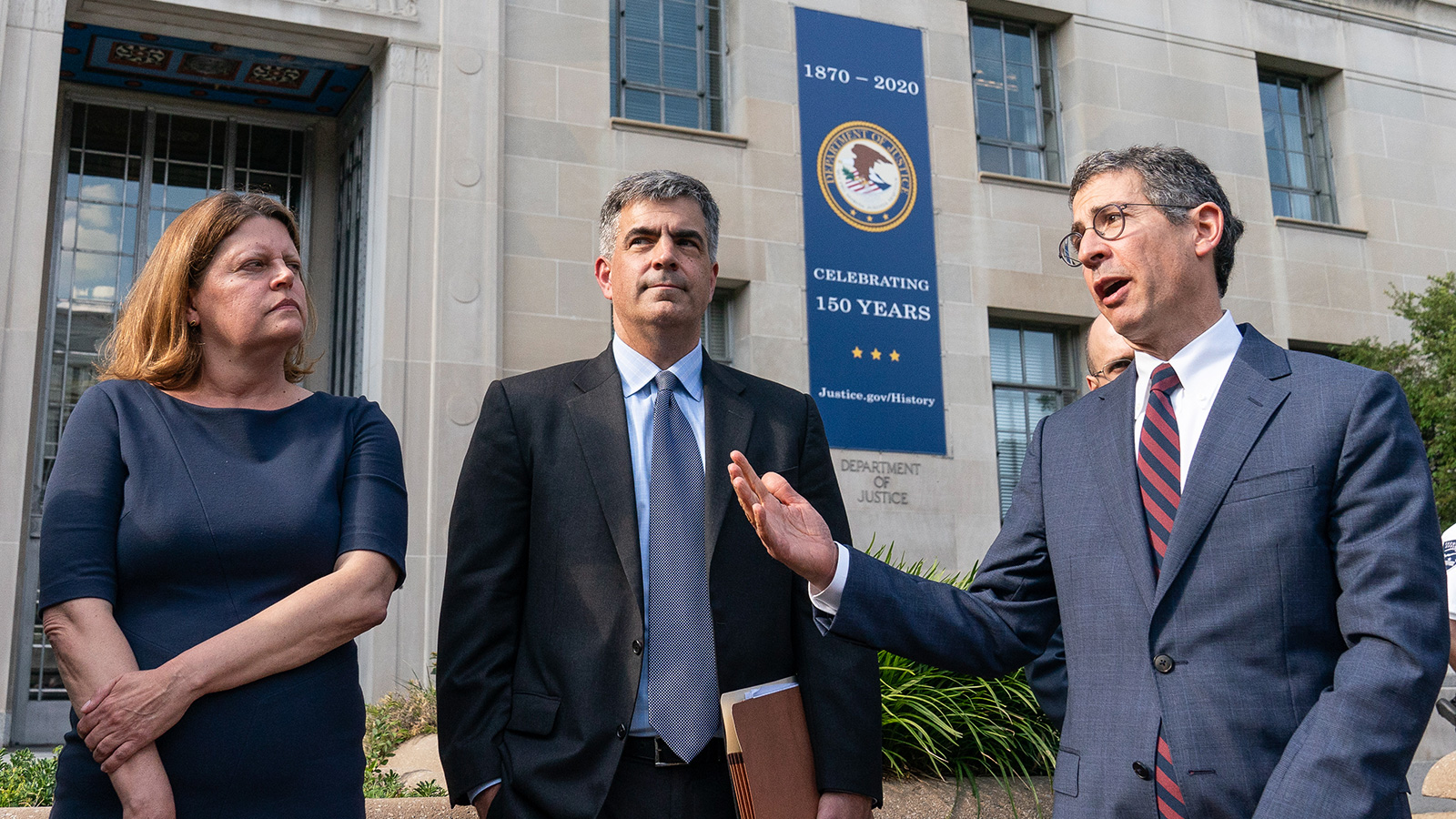
Reporters Committee for Freedom of the Press
Award: $1.25 million
To expand its Local Legal Initiative to Louisiana and Mississippi, providing direct legal support to local journalists with a focus on nonprofit and under-resourced newsrooms.
The program includes hiring in-state attorneys backed by national legal teams and offering pre-publication review, litigation support, and legal training. The model has proven successful in five states and is designed to fill a critical gap in legal protection for journalists in the South.
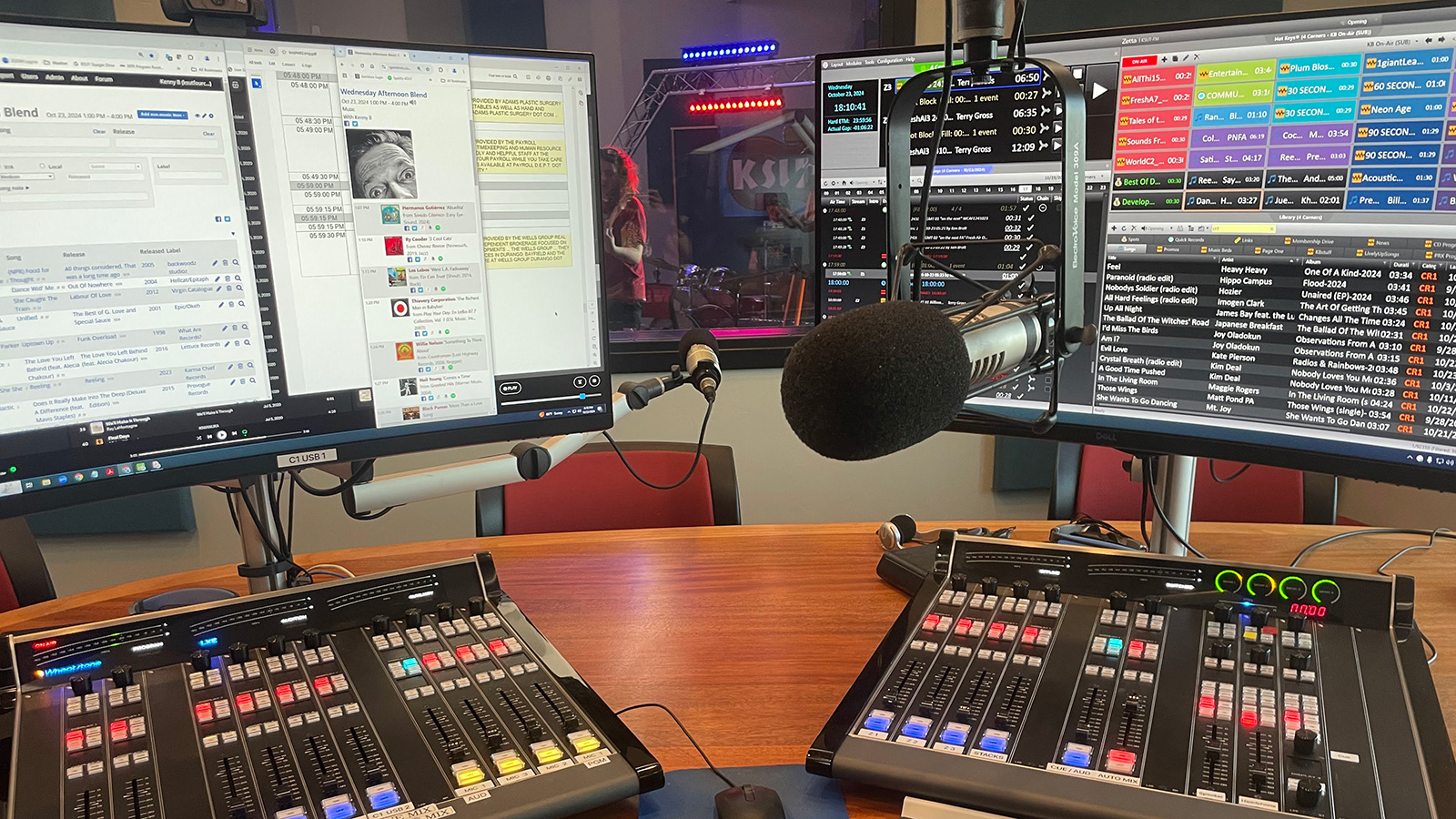
Rocky Mountain Community Radio
Award: $1 million
To create a shared engineering staff, providing the network’s 20 community radio stations across four states with access to mission-critical broadcast engineers.
The project addresses a shortage of broadcast engineers by hiring a shared staff in Colorado, New Mexico, Utah, and Wyoming, establishing an equipment pool for emergencies, and coordinating services across stations. The program will also develop an apprentice program to continue building the talent pipeline needed to run these stations.
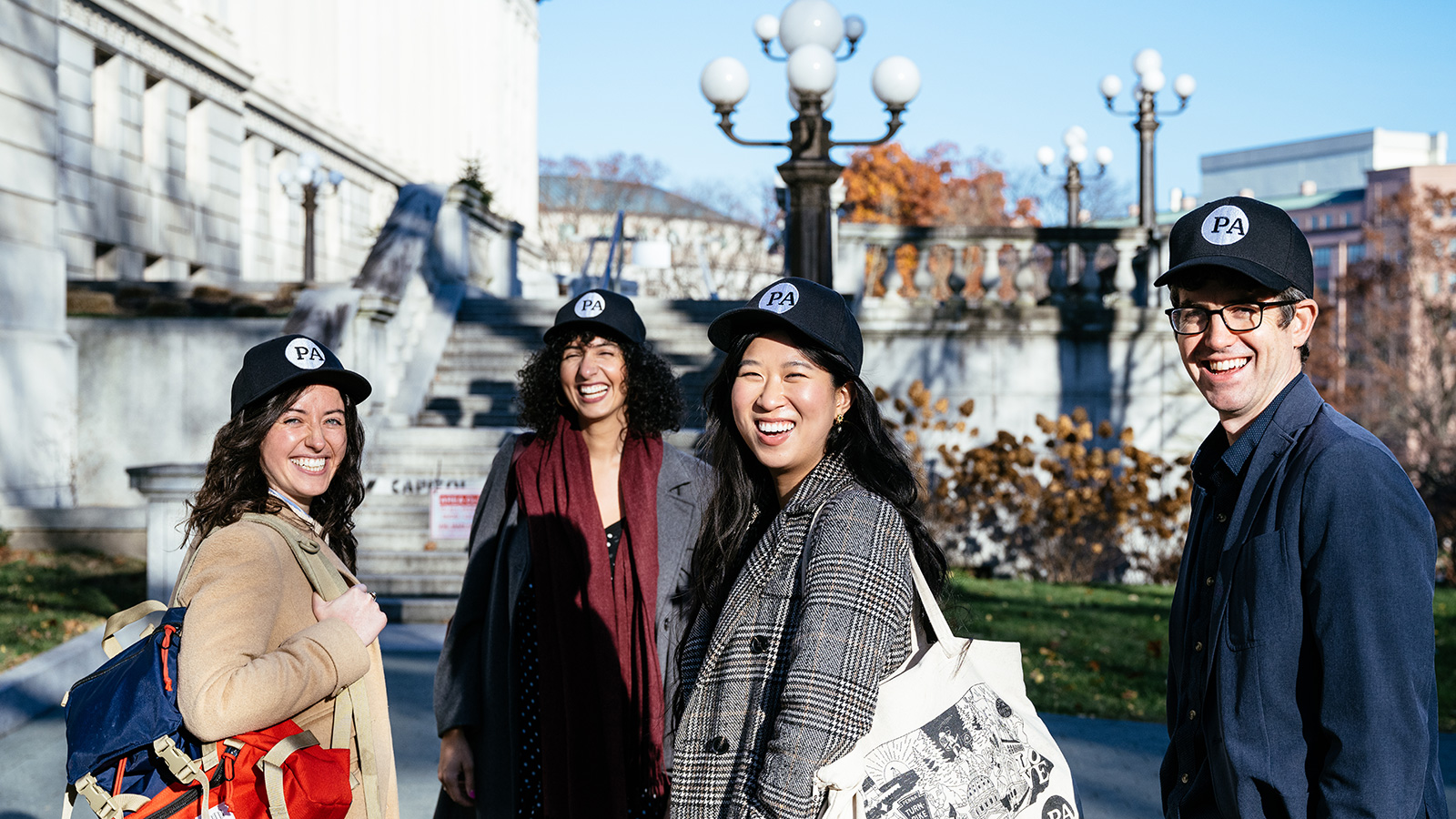
Spotlight PA
Award: $500,000
To produce high-quality investigative and public-service journalism for a network of TV partners that reach more than 10 million people.
In Pennsylvania, most local broadcast stations don’t have the staff or budget to produce in-depth, local journalism beyond day-to-day news developments. Funding will build on a pilot program to help the nonprofit newsroom Spotlight PA expand its reach by creating a centralized multimedia studio to better connect its high-quality journalism with people across the state — via television, social media, and other partnerships — and explore earned revenue opportunities to sustain it.

Start.coop
Co-applicants: Defector Media, Media Economies Design Lab, University of Colorado Boulder, Freelance Solidarity Project & National Writers Union
Award: $1.5 million
To provide worker-owned media collaboratives with back-office shared services, lowering their costs and increasing their sustainability.
This organization, which has supported cooperatives for breweries, hardware stores, and other sectors, will now bring its back-office support model to local news. Working closely with Defector, a worker-owned site that often receives inquiries about its model, Start.coop will help small newsrooms create a cooperative services hub that takes care of operations from HR to payroll, legal, benefits, and administration, saving outlets money and time.

Type Investigations
Award: $1 million
To expand its Springboard Project, which provides hands-on training in investigative reporting and fundraising support for newsrooms in historically marginalized communities.
Newsrooms often need additional resources to undertake investigative work, beyond one-off trainings and fellowships. Type’s program fills the gap by providing reporting and editing expertise, assistance with records requests, data analysis and fact-checking, and fundraising support to build long-term capacity. In addition to investing in individual reporters, Springboard resources the entire newsroom according to their needs.
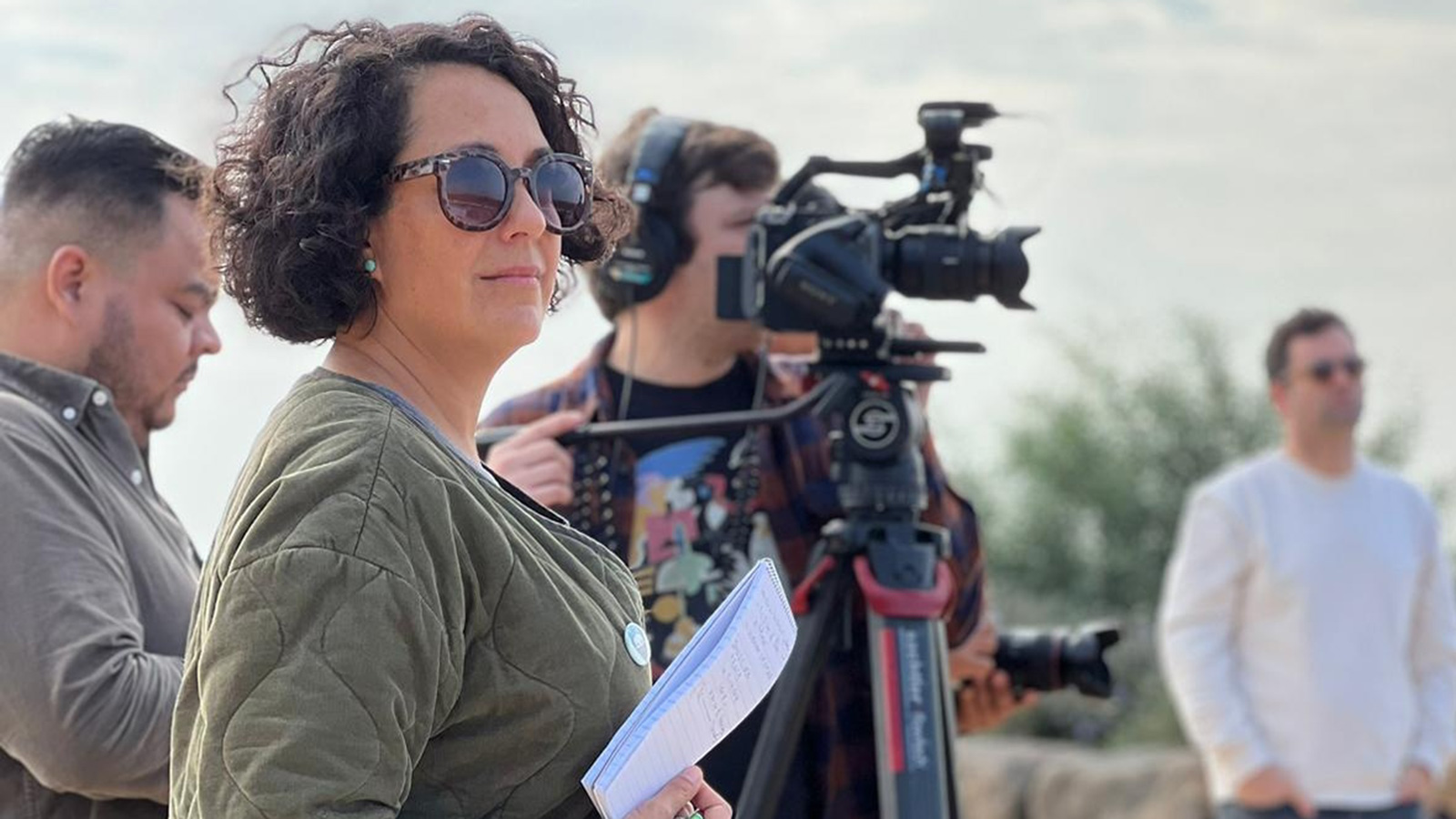
Vita Activa
Award: $500,000
To provide journalists and media professionals with mental health services tailored to their needs.
Journalists and media professionals face a unique intersection of challenges that can impact their mental health, from systemic inequities to financial instability and the emotional toll of advocating for their communities. The Media Resilience Network will address those issues by providing access to professional counseling services, peer support networks, skills-building workshops and virtual and in-person task forces.

Voces Internship of Idaho
Award: $500,000
To expand coverage for Latino audiences by professionalizing and expanding the Voces internship program across the state of Idaho
With funding, Voces will transform this volunteer-run effort by hiring paid staff, increasing stipends for interns, and extending its reach beyond the Boise area to cities with fast-growing Hispanic populations. The key to Voces’ success is strategic internship placements catered to each student and extensive career guidance from the organization.
